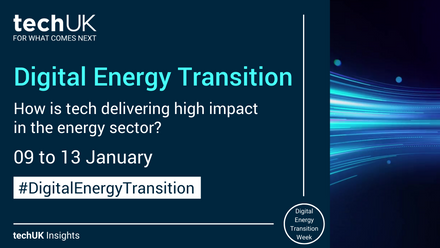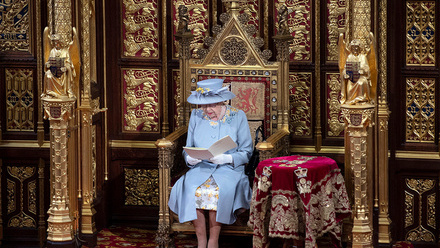Connected Britain 2023 showcases industry innovation and action towards the future of UK connectivity
This year’s Connected Britain at the ExCel was the place to be to network with leaders and industry stakeholders in the telecoms space. Discussions revolved around the future technology, regulation, and investment environment for the rollout of next generation networks in the UK.
Below, techUK outline a few key take-home messages from a jam-packed two days.
Industry continues leading the way in bringing connectivity benefits to households and businesses across the UK. But barriers remain in fixed and mobile network rollout that must be addressed.
Industry leaders, from telecom operators, mobile network operators, network providers and suppliers, hit the ground running from day one and showcased the work they do in bringing digital connectivity to communities across the UK. Many techUK members showed how 5G is scaling faster than any previous mobile generation, and the creation of innovative technologies to foster more efficienct networks, and better services for citizens and businesses, while reducing their carbon emission footprint.
Over the two days, barriers to further deployment of fixed and mobile network infrastructure were discussed at length. Recurring messages from industry included the need for a more efficient and standardised planning process, clearly defined Digital Champion's within local authorities and better citizen and business education around the benefits 5G and gigabit-capable broadband can bring.
On this, Minister Whittingdale closed day one outling the UK government’s action so far on ambitions set out in the Wireless Infrastructure Strategy. Ambitions include strengthening the investment environment, driving further adoption in key economic sectors and truly realising the benefits of 5G and advanced wireless connectivity.
Collaboration between industry, local authorities, and government is crucial to deliver standalone 5G to all populated areas by 2030 and, to realise the benefits that future technologies may bring.
A recurring theme over the two days was the vital role that communication between industry stakeholders in acheiving digital connectivity ambitions. For instance, the recent DCF and FarrPoint report outlined the UK’s rollout of gigabit-capable broadband and 5G connectivity can only be achieved from improvements in communication, collaboration and consistency between local authorities and the telecoms industry.
Highlighting this point, techUK Head of Telecoms and Spectrum Policy, Sophie James, hosted a panel with Theo Blackwell (Chief Digital Officer at Greater London Authority), Robbie McGhee (Deputy Director for Digital Connectivity at The Scottish Government) and Ceren Clulow (Programme Director at Connecting Cambridgeshire) on the key role that local authorities can play. Indeed, the social value, placemaking, and £159 billion in productivity benefits that widespread adoption of 5G could bring was recognised by all.
For London, key projects from the Greater London Authority include completion of 4G rollout on the tube network by December 2024, and for 100% Local authority owned social housing covered by an agreement between the freeholder and full fibre operator by March 2025.
Gigabit-capable broadband and 5G connectivity can contribute to digital connectivity and inclusion, reaching the most rural parts of the UK.
Industry leaders recognised the need for digital connectivity through fixed and wireless network roll out in the most hard-to-reach areas of the UK. It was clear that digital inclusion for everyone, everywhere is at the forefront of industry ambitions. Bringing mobile broadband to rural communities across the UK, techUK continues to support the government’s Shared Rural Network. Collaboration between MNOs and government continues to increase choice and boost productivity in rural areas.
The government’s flagship £5 billion Project Gigabit programme got notable mentions over the two days. Many from industry commended the programme as government recognition of the benefits further roll out can bring to the growth and productivity of the economy.
To date, Project Gigabit has brought a total of 27 live procurements, covering a total of over 780,000 premises. In total, contracts represent over £2 billion of investment to support the deployment of gigabit-capable broadband to over 1.1 million premises in hard-to-reach areas across the UK. This showcases the importance of government backed support to strengthen the investment environment.
The two days explored how next generation broadband technologies, including fibre and 5G, are enabling exciting new opportunities for industry, businesses, communities, and individuals. As is clear in the name, Connected Britain truly showcased that digital connectivity is the cornerstone of the UK government's economic growth and recovery, and ambitions to become a science and tech superpower. TechUK look forward to next year’s conference and our continued work with techUK members to create the right environment for investment in infrastructure deployment and innovative services.
Get involved in techUK's work across our Communications Infrastructure and Services programme.










